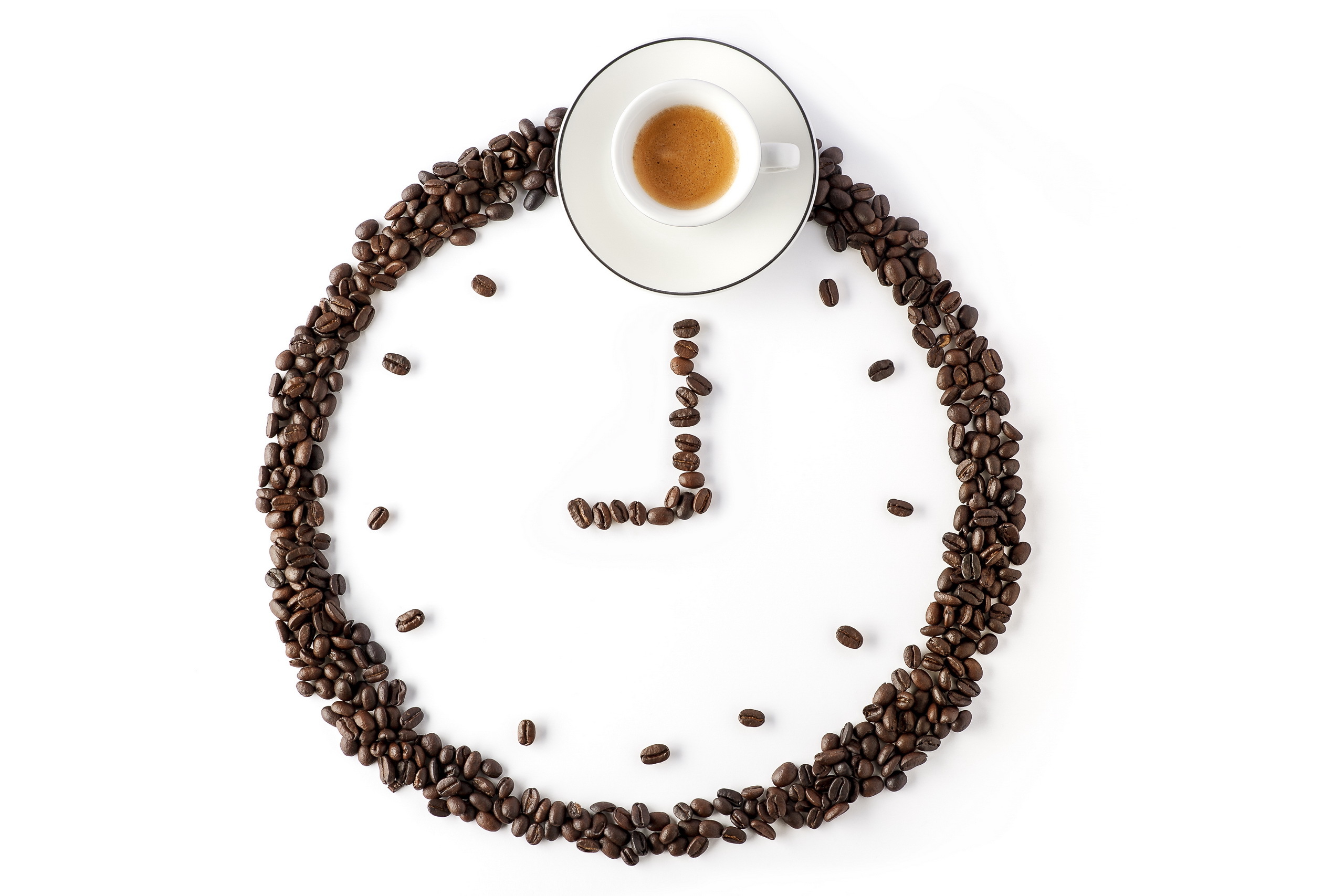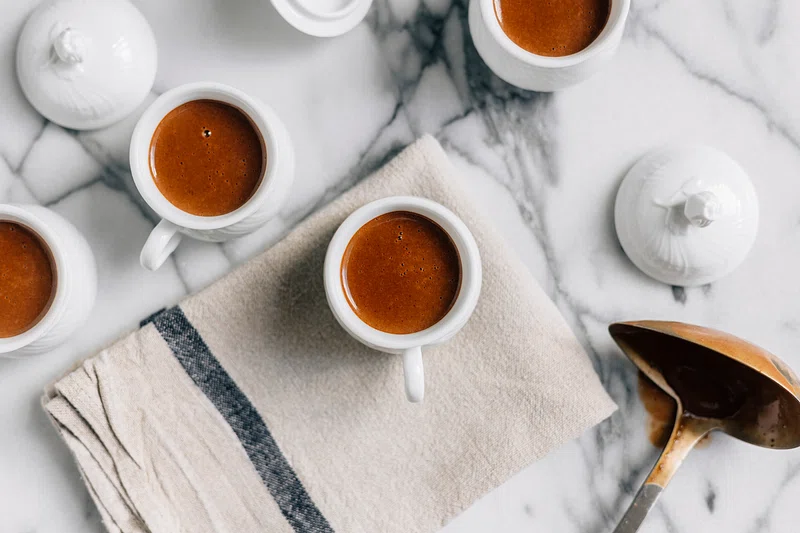Coffee has long been a global staple, offering a delightful blend of rich flavors and an energizing boost. With its key ingredient, caffeine, coffee provides much more than just a morning ritual or an afternoon pick-me-up. But when is the best time to drink coffee?

To answer this, we need to explore how caffeine affects the human body, its impact on circadian rhythms, and its interactions with hormones like cortisol. Additionally, we’ll examine whether drinking coffee immediately after waking up is a good idea, consider different parts of the day, and identify situations when it’s advisable to avoid coffee altogether.
Table of Contents
Understanding How Caffeine Affects the Human Body
1. The Science Behind Caffeine’s Effects
Caffeine is a stimulant that primarily affects the central nervous system. Once ingested, it quickly absorbs into the bloodstream and reaches the brain, where it blocks the neurotransmitter adenosine. Adenosine is responsible for making us feel drowsy and relaxed. By inhibiting this neurotransmitter, caffeine increases alertness, attention, and cognitive function.
Caffeine also stimulates the release of adrenaline, the “fight or flight” hormone. This results in elevated heart rate, blood pressure, and energy levels. For many people, this is why coffee offers a much-needed energy boost during the day, particularly during moments of fatigue.
The liver metabolizes caffeine, and its effects can last for several hours depending on the individual’s metabolic rate, age, and tolerance levels. Typically, caffeine’s half-life is about 5-6 hours, meaning that half of the caffeine consumed remains in your system after this time. This lasting impact makes timing your coffee consumption crucial.
2. Caffeine and Neurotransmitters
In addition to adenosine, caffeine impacts other neurotransmitters. It triggers the release of dopamine, which enhances mood, pleasure, and motivation. This explains why coffee can feel like an emotional lift in addition to its physical effects. However, consistent caffeine consumption can lead to desensitization, meaning that over time, the body may become less responsive to caffeine’s stimulant properties.
While caffeine has numerous short-term benefits, overconsumption or irregular timing can lead to negative side effects like jitteriness, anxiety, and disrupted sleep. Understanding how caffeine works within the body can help determine when it is most beneficial to consume coffee.
The Impact of Coffee on Circadian Rhythms
1. What Are Circadian Rhythms?
Circadian rhythms are the natural 24-hour cycles that govern our sleep-wake patterns, hormone production, and various other physiological processes. These rhythms are heavily influenced by external cues, such as light and temperature, but they are also regulated by internal factors, including hormones like melatonin and cortisol.
A key element of circadian rhythms is the sleep-wake cycle. Melatonin, often referred to as the “sleep hormone,” is produced in response to darkness, signaling the body that it’s time to rest. Cortisol, on the other hand, is known as the “stress hormone” and follows a predictable pattern, peaking in the morning to help us wake up and stay alert.
2. How Coffee Disrupts or Aligns with Circadian Rhythms
Coffee consumption can either harmonize or disrupt circadian rhythms, depending on the timing. Cortisol levels naturally peak about 30-45 minutes after waking, helping the body transition from a state of rest to alertness. Drinking coffee too early, during this cortisol peak, can blunt the body’s natural energy boost, leading to reduced sensitivity to caffeine over time. This is one reason why many experts suggest waiting at least an hour after waking to drink coffee.
Caffeine also delays melatonin production. If consumed too late in the day, coffee can interfere with your body’s ability to wind down, negatively impacting sleep quality and the timing of your circadian rhythms. This interaction with melatonin is why it’s advisable to limit caffeine intake in the afternoon and evening.

Coffee and Hormones: Cortisol’s Role
1. Cortisol and Coffee
Cortisol, the hormone responsible for managing stress and keeping us alert, operates in a diurnal cycle. It peaks naturally between 6 and 8 a.m., drops off around midday, and rises again in the late afternoon before tapering off toward the evening.
When you drink coffee during periods of high cortisol production, you’re not necessarily boosting your energy but could be interfering with your body’s natural rhythm. The caffeine might even reduce cortisol sensitivity, meaning you would need more caffeine over time to achieve the same alertness.
Therefore, drinking coffee during periods of low cortisol, such as mid-morning (around 9:30-11:30 a.m.) and early afternoon (1:30-3:00 p.m.), is often more effective at boosting energy without negatively impacting the body’s natural processes.
2. Is It OK to Drink Coffee Right After Waking Up?
It might seem intuitive to reach for a cup of coffee as soon as you wake up, especially if you feel groggy. However, this might not be the most effective timing. As mentioned earlier, cortisol peaks soon after waking up, providing a natural surge in energy. Drinking coffee during this cortisol peak could diminish the caffeine’s effects and interfere with the body’s natural alertness cycle.
Instead of drinking coffee immediately, it’s best to wait around 60-90 minutes after waking, when cortisol levels begin to drop. By this time, coffee can offer a more potent energy boost without disrupting hormonal balance.
When to Drink Coffee: Best Times Throughout the Day
1. Mid-Morning (9:30 a.m. – 11:30 a.m.)
One of the best times to drink coffee is mid-morning, typically 90 minutes to two hours after waking. By this time, your cortisol levels have dropped, and coffee can provide an effective energy boost without interfering with the body’s natural rhythms. The caffeine helps increase focus and concentration, making it an ideal time to tackle tasks requiring mental acuity.
For most people, mid-morning coffee can enhance productivity and help stave off any early fatigue that might set in after the initial cortisol rush fades.
2. Early Afternoon (1:30 p.m. – 3:00 p.m.)
The early afternoon slump is a common occurrence, where people feel tired or sluggish after lunch. This dip in energy is partly due to the natural drop in cortisol levels, making it another optimal time for coffee consumption. By drinking coffee during this window, you can counteract the dip in alertness and regain focus for the remainder of the day.
It’s important to avoid coffee too late in the afternoon, as this can interfere with your ability to fall asleep later at night. Early afternoon coffee can provide the boost needed to sustain energy levels without negatively impacting sleep.
3. Mid-Morning vs. Early Afternoon Coffee
So, is it better to drink coffee in the mid-morning or early afternoon? The answer depends on individual needs and routines. If you’re someone who feels energized in the morning but hits a wall in the afternoon, then an early afternoon coffee may be more effective. Conversely, if you struggle to wake up fully in the morning, a mid-morning coffee might be more beneficial.
Some people may benefit from both, but it’s essential to monitor your caffeine tolerance. Drinking coffee during both periods should be spaced out to prevent an excess of caffeine intake, which can lead to jitters, increased heart rate, or digestive issues.
4. Avoid Coffee in the Late Afternoon and Evening
Caffeine has a half-life of around 5-6 hours, meaning that half the caffeine you consume stays in your system for that time. Drinking coffee in the late afternoon (after 3:00 p.m.) or evening can negatively affect sleep quality. Even if you fall asleep, caffeine can prevent you from entering deep sleep stages, leaving you feeling unrested the next day.
If you’re sensitive to caffeine or have trouble sleeping, it’s best to avoid coffee after lunchtime. Instead, opt for herbal teas or other non-caffeinated beverages that won’t disrupt your sleep cycle.

Situations When It’s Advisable to Avoid Drinking Coffee
While coffee offers numerous benefits, there are also situations when it’s best to avoid drinking it, either for health reasons or to maintain balance in daily life.
1. If You’re Already Stressed or Anxious
Caffeine stimulates the release of adrenaline, increasing feelings of alertness and stress. If you’re already feeling anxious, nervous, or under significant stress, drinking coffee can exacerbate these feelings. The combination of stress hormones and caffeine can cause jitters, palpitations, and increased anxiety.
In such situations, consider limiting your coffee intake or switching to herbal teas like chamomile or peppermint, which have calming effects.
2. If You’re Sleep Deprived
It might seem counterintuitive, but drinking coffee when you’re sleep-deprived can do more harm than good. While it offers a temporary boost, caffeine can mask the signs of fatigue, making you less aware of how tired you really are. Over time, this can lead to a vicious cycle of poor sleep and increased caffeine consumption, which further disrupts sleep quality.
Instead of reaching for coffee after a bad night’s sleep, try to re-establish a consistent sleep schedule and avoid caffeine in the afternoon and evening to ensure a restful night.
3. During Pregnancy
Caffeine crosses the placenta and reaches the developing fetus, which cannot metabolize it as efficiently as an adult. High caffeine intake during pregnancy has been linked to an increased risk of low birth weight, preterm birth, and even miscarriage. Most experts recommend limiting caffeine consumption during pregnancy to around 200 milligrams per day, equivalent to about one 12-ounce cup of coffee.
Pregnant women should consult their healthcare provider about safe caffeine intake levels and consider decaffeinated or low-caffeine alternatives.
4. If You Have Gastrointestinal Issues
Caffeine can irritate the stomach lining, increasing acid production and aggravating conditions like acid reflux, GERD, or ulcers. If you experience heartburn or other gastrointestinal discomfort after drinking coffee, it may be a sign to cut back or switch to a gentler beverage, such as tea.
Those with sensitive stomachs may also benefit from drinking coffee with food rather than on an empty stomach, which can reduce its irritative effects.
5. When You Rely on Coffee for Energy
If you find yourself relying on coffee as your primary source of energy, it may be time to reassess your habits. While coffee provides a temporary boost, it should not replace good nutrition, sleep, or proper hydration. Excessive coffee consumption can lead to tolerance, making it less effective over time. When you need larger amounts of caffeine to feel energized, it may be a sign that your body is fatigued, and it’s essential to address the root cause rather than masking it with caffeine.

Conclusion
Determining the best time to drink coffee involves understanding how caffeine interacts with the body, including its impact on circadian rhythms, cortisol levels, and overall hormonal balance. While coffee is a highly effective stimulant, the timing of its consumption is crucial for maximizing its benefits and minimizing potential downsides.
For most people, the optimal times to drink coffee are mid-morning and early afternoon, avoiding periods of peak cortisol production and late-day caffeine intake that can interfere with sleep. Situations like stress, anxiety, sleep deprivation, pregnancy, and gastrointestinal issues are good indicators of when to cut back or avoid coffee altogether.
By paying attention to these factors, you can enjoy coffee’s numerous benefits while maintaining your well-being and energy levels throughout the day.
